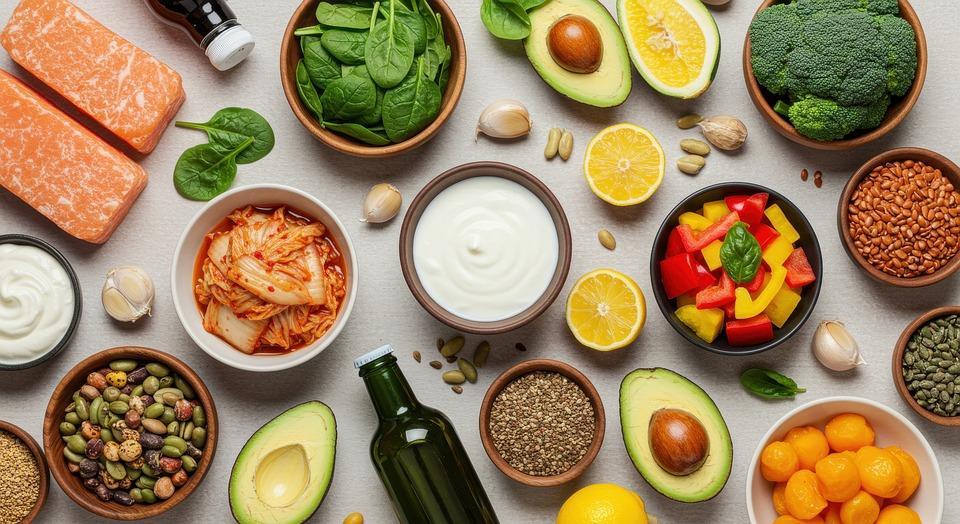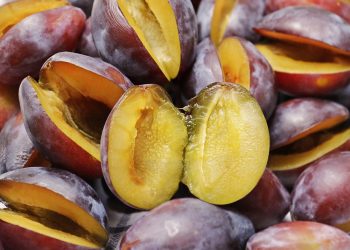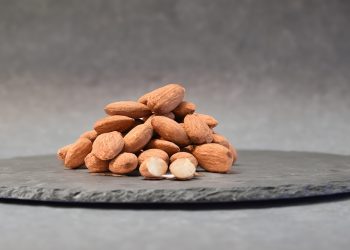Mastering a balanced diet today is not just a trend; it’s a necessity for your body and spirit. If you’re looking to nourish yourself in a way that energizes, revitalizes, and supports your overall well-being, you’ve landed in the right place. A balanced diet means consuming the right proportions of macronutrients—carbohydrates, proteins, and fats—alongside a variety of vitamins and minerals. This isn’t just about kale smoothies or counting calories; it’s about creating a sustainable lifestyle that brings joy and health into your life.
Why is it significant? Because the food you eat fuels everything you do. It affects your mood, energy levels, and even how you age. When you master the art of a balanced diet, you’re investing in your future self. Ready to uncover the secrets? Let’s dive in!
Contents
- Understanding Balanced Diet Basics
- Secret #1: Know Your Macronutrients
- Secret #2: Portion Control is Key
- Secret #3: Embrace Variety
- Secret #4: Stay Hydrated
- Secret #5: Plan Your Meals
- Secret #6: Mindful Eating
- Secret #7: Don’t Be Too Hard on Yourself
- The Importance of Whole Foods
- The Role of Supplements
- Building a Balanced Plate
- Resources for Further Learning
- Bottom Line
- Frequently Asked Questions
Understanding Balanced Diet Basics
Before we jump into the secrets, let’s clarify what a balanced diet entails. It isn’t a one-size-fits-all approach. Your dietary needs vary based on age, activity level, and health goals. That said, a balanced diet generally consists of:
- Fruits and Vegetables: Aim for a colorful variety.
- Whole Grains: Think oats, quinoa, and brown rice.
- Proteins: Include lean meats, fish, beans, and legumes.
- Healthy Fats: Avocados, nuts, and olive oil should be your go-tos.
- Dairy or Alternatives: Choose low-fat or plant-based options.
Simply put, a balanced diet is about nourishing your body with wholesome foods while enjoying flexibility. Now, let’s explore the seven secrets!
Secret #1: Know Your Macronutrients
Understanding macronutrients is your first stepping stone. This means recognizing the right balance of carbohydrates, proteins, and fats that suits your lifestyle.
- Carbohydrates: They are your body’s primary energy source. Opt for complex carbs like whole grains and legumes.
- Proteins: Essential for muscle repair and growth. Incorporate a mix of animal and plant-based proteins.
- Fats: Don’t shy away from healthy fats; they’re crucial for hormonal balance and nutrient absorption.
Secret #2: Portion Control is Key
Portion sizes can make or break your dietary goals. You can eat the healthiest foods, but if your portions are out of whack, you may still struggle. Here are some tips:
- Use smaller plates.
- Fill half your plate with vegetables.
- Listen to your body’s hunger cues—eat when you’re hungry, not just because it’s mealtime.
Secret #3: Embrace Variety
Eating a variety of foods is essential. This keeps meals exciting and ensures you get a broad spectrum of nutrients. Challenge yourself to try new foods each week.
- Explore different fruits and vegetables.
- Experiment with whole grains you haven’t tried before.
- Mix up your protein sources—try lentils one week, salmon the next.
Secret #4: Stay Hydrated
Hydration is often overlooked but is a crucial aspect of a balanced diet. Water helps with digestion, nutrient absorption, and energy levels.
- Aim for at least 8 cups of water daily.
- Keep a reusable water bottle handy.
- Infuse your water with fruits or herbs for a refreshing twist.
Secret #5: Plan Your Meals
Meal planning can be a game changer. By taking time each week to plan your meals, you set yourself up for success. Here’s how:
- Choose a day to prep meals and snacks.
- Make a shopping list based on your meal plan.
- Batch-cook grains and proteins to save time during the week.
Secret #6: Mindful Eating
Taking time to savor your meals can transform your eating experience. Mindful eating encourages you to focus on your food and recognize hunger and fullness cues.
- Put away distractions like your phone or TV.
- Chew slowly and appreciate the flavors.
- Pay attention to how different foods make you feel.
Secret #7: Don’t Be Too Hard on Yourself
Finally, remember that perfection isn’t the goal. Life happens, and it’s okay to indulge occasionally. Your journey to mastering a balanced diet should be enjoyable and sustainable.
- Allow yourself a treat without guilt.
- Focus on progress, not perfection.
- Celebrate small victories along the way.
The Importance of Whole Foods
Mastering a balanced diet today is about choosing whole foods over processed ones. Whole foods are nutrient-dense, meaning they provide more vitamins and minerals per calorie. They keep you fuller longer and help stabilize your blood sugar levels.
- Whole grains: Opt for brown rice, quinoa, and whole wheat products.
- Fresh produce: Aim for organic when possible to avoid pesticides.
- Lean proteins: Choose fish, poultry, tofu, and legumes.
The Role of Supplements
While it’s best to get your nutrients from food, supplements can sometimes fill gaps. Consult a healthcare professional to determine if you need any additional support.
- Multivitamins can help cover daily needs.
- Omega-3 fatty acids support heart and brain health.
- Vitamin D is crucial, especially if you’re not getting enough sun.
Building a Balanced Plate
Creating a balanced plate is easier than it sounds. Here’s a simple guide to help you visualize:
- Half your plate: Fill it with fruits and vegetables.
- A quarter: Include lean protein.
- A quarter: Add whole grains.
This method ensures you’re getting a balanced mix of nutrients in every meal.
Resources for Further Learning
For those eager to dig deeper into mastering a balanced diet today, here are some reputable resources:
- Harvard Health – Healthy Eating Plate
- USDA – MyPlate
- Centers for Disease Control and Prevention – Nutrition
Bottom Line
Mastering a balanced diet today is within your reach. By understanding your macronutrients, practicing portion control, embracing variety, staying hydrated, planning your meals, eating mindfully, and giving yourself grace, you can create a nourishing lifestyle.
Now is the time to take action. Start small—maybe by meal prepping or trying a new recipe this week. Your body will thank you!
Frequently Asked Questions
1. How can I maintain a balanced diet on a budget?
Plan meals around seasonal produce, buy in bulk, and prioritize whole foods over processed items.
2. What if I have dietary restrictions?
Focus on foods that fit your needs—there are plenty of alternatives available to ensure you still get a balanced diet.
3. Can I eat out and still maintain a balanced diet?
Absolutely! Look for meals that include a variety of food groups and opt for grilled or baked options instead of fried.
Embrace the journey to a balanced diet today! Your future self will be grateful.
Get Your FREE Natural Health Guide!
Subscribe now and receive our exclusive ebook packed with natural health tips, practical wellness advice, and easy lifestyle changes — delivered straight to your inbox.















